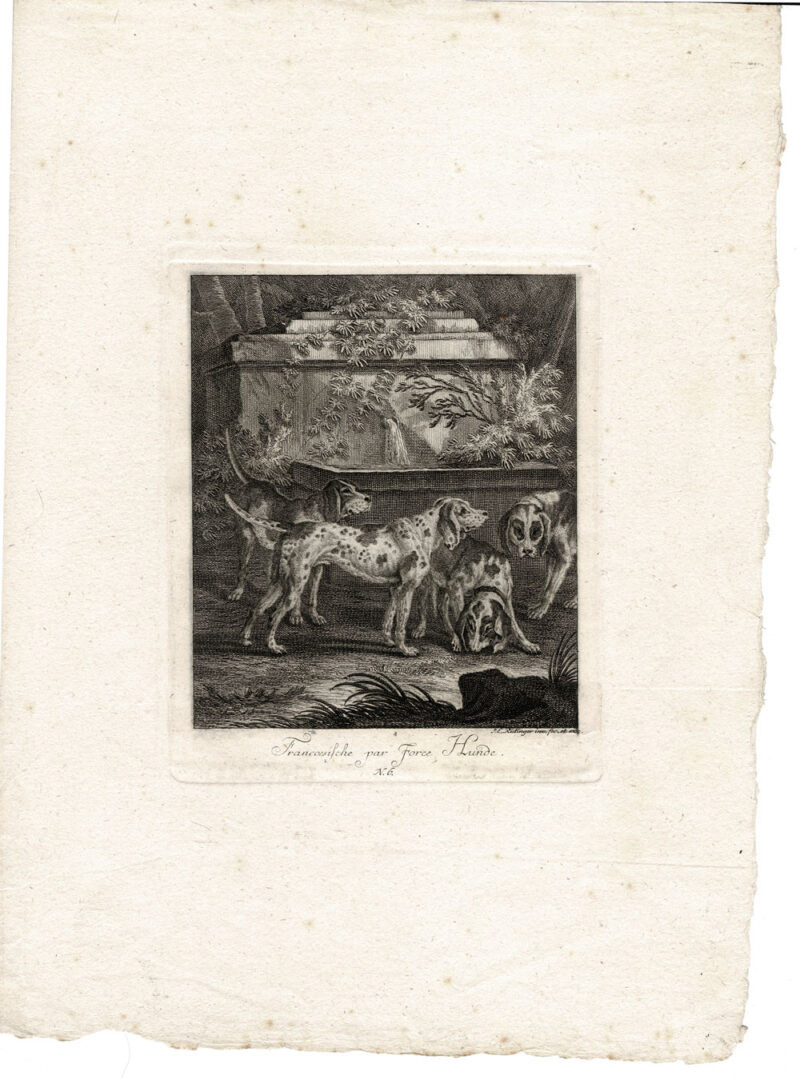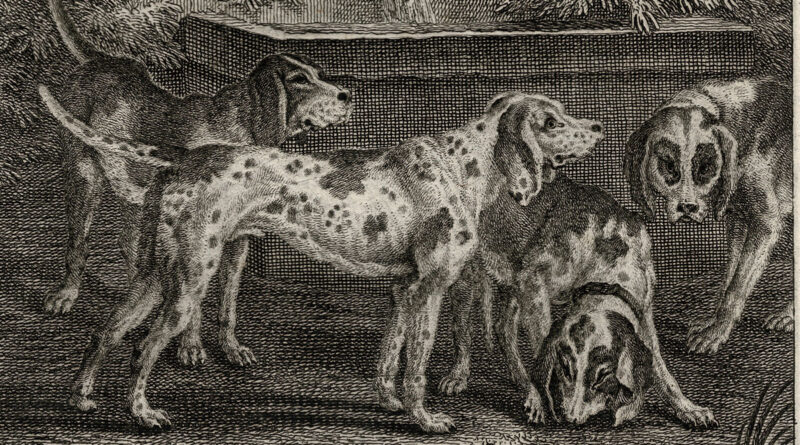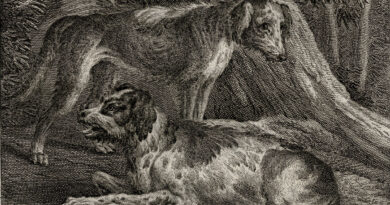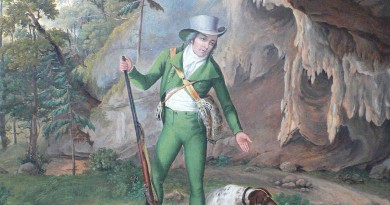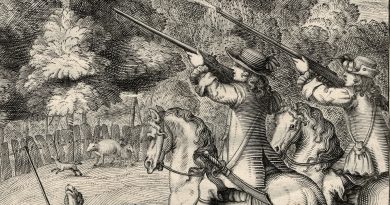Ridinger – Hound Dogs – Francosiche Par Force Hunde
Ridinger, Johann Elias
(Born Ulm, February 16, 1698 – Died Augsburg, April 10, 1767)
Antique Copperplate Engraving – French Hounds
Francosiche Force Hunde (N. 6)
Signed in the plate: I. E. Ridinger inv. fec et exc.
Dimensions: 10.75 X 14.5 inches
(27 X 37 cm)
Condition: Excellent
From the Book: In: “Entwurff Einiger Thiere […] Erster Theil”, herausgegeben von Johann Elias Ridinger, Augsburg 1738, Nr. 6
This plate illustrates the type of dogs used for the “chasse au parforce,” traditional parforce hunting.
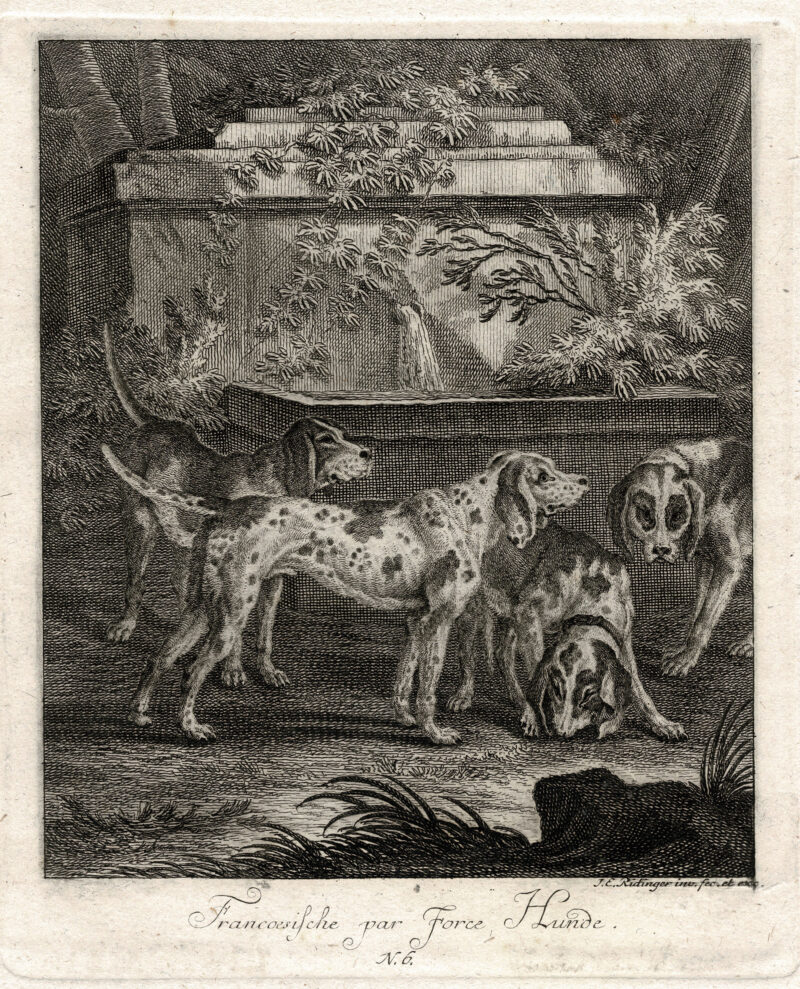
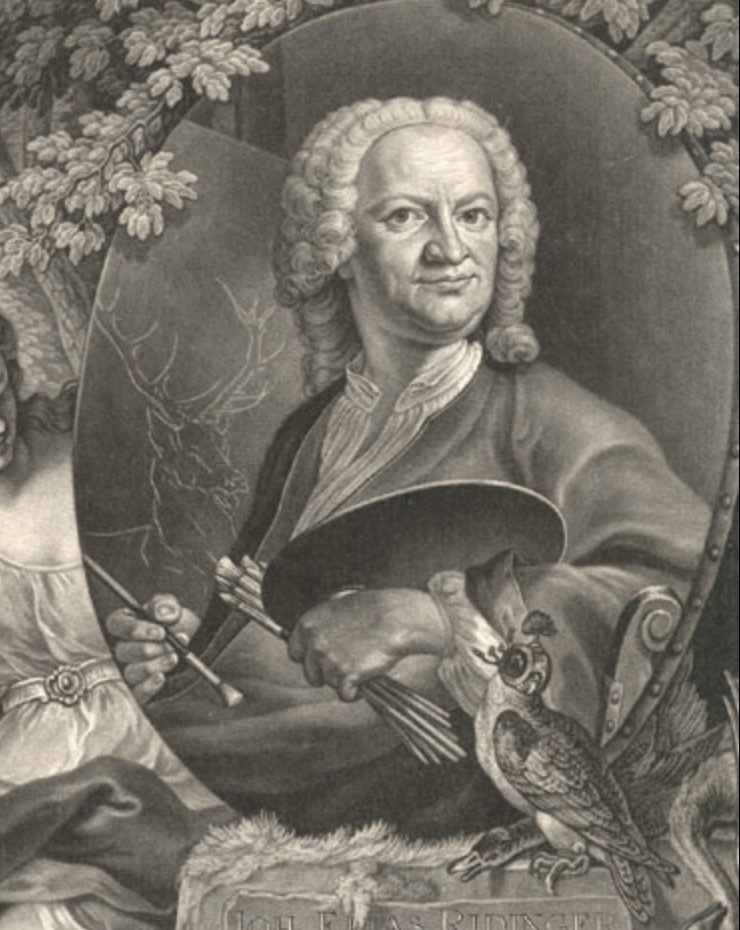
Johann Elias Ridinger (1698-1769) is one of the most famous German engravers of animals, particularly horses, hounds and hunting scenes. He began his training in Ulm with the painter Christoph Resch (170116), and later studied under Johann Falch (16871727) in Augsburg. He learned the art of engraving from Georg Philipp Rugendas.
At the invitation of Wolf, Freiherr von Metternich, Ridinger spent threes years at the Riding School of Regensburg, an experience which had a profound influence on his work. His illustrations of equitation are among his best known engravings.
Sometime around 1723, Ridinger founded his own art publishing house in Augsburg and began selling prints that he himself designed and engraved. These included series on hunting, breeds of horses, riding manuals, wild animals and the hunting dogs shown here.
After Ridinger’s death his sons Martin Elias Ridinger (173080) and Johann Jakob Ridinger (173684) continued to run the publishing house, issuing reprints of the most popular series of their father’s work. We are not certain which edition this print comes from, but based on the old handlaid chainlinked paper it is certainly either 18th Century or early 19th Century.
Several of the prints in this set have a watermark – one appears to be WAM*?EN and a second **WL (Where we have used an * = we cannot determine the letter). Each has wide margins and the paper with its slight irregularities is clearly old and hand made.
